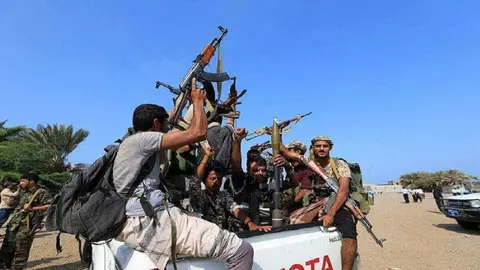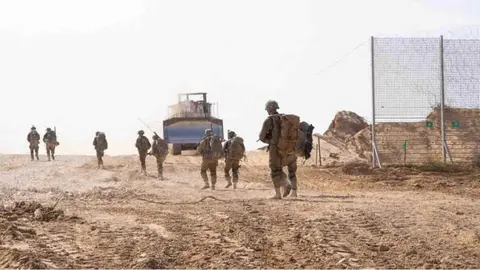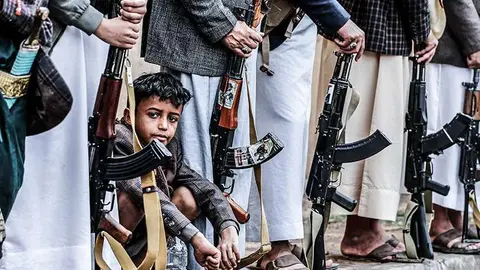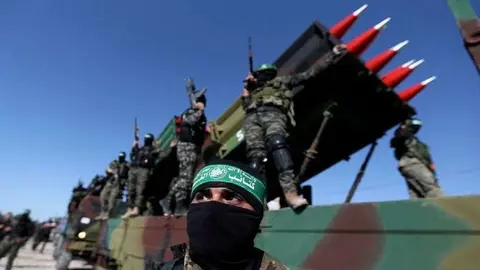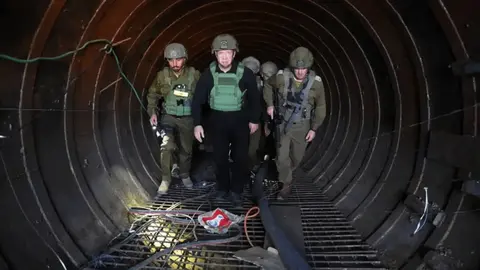More than 20 countries join US-led Red Sea coalition
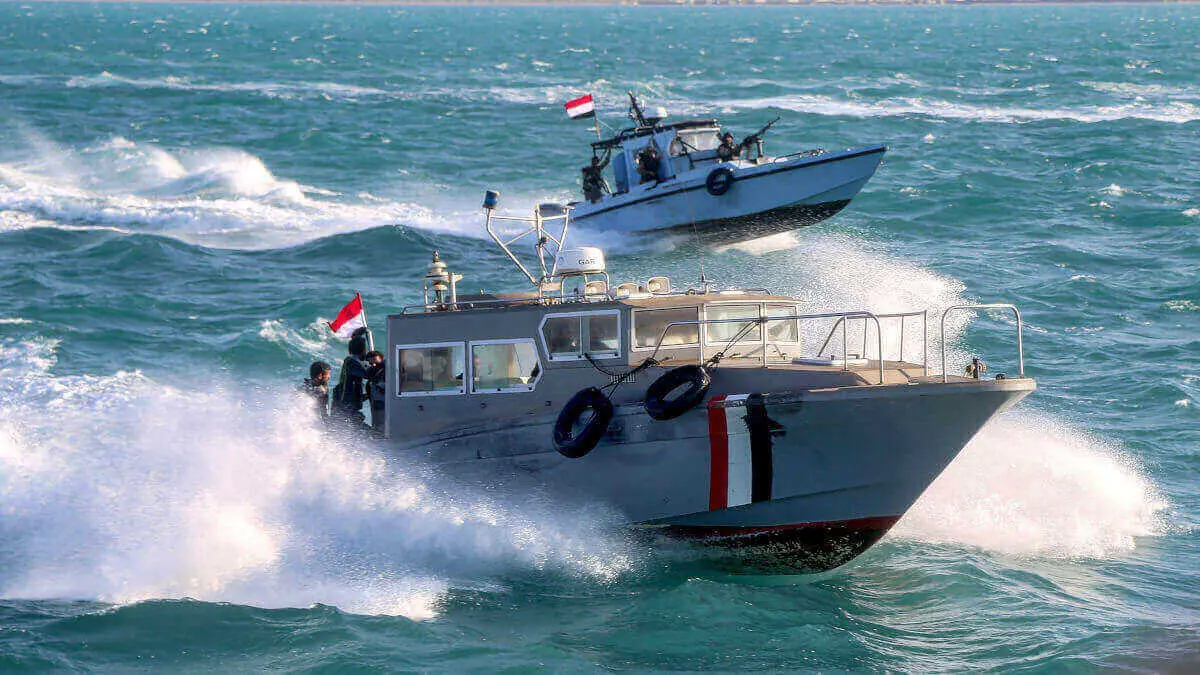
More than 20 nations will be part of a new US-led coalition to protect commercial traffic in the Red Sea from attacks by Yemen's Houthi rebels, the Pentagon has announced.
- Several companies divert or stop their Red Sea traffic, Houthis vow more attacks
- Yemen, the biggest humanitarian crisis aggravated by Houthi crimes
- Israel finds new Hamas tunnels in Gaza, territory on brink of famine
- Taking advantage of the war, Iran steps up executions
This was announced by the Pentagon, which also indicated that at least eight of the countries joining Operation Prosperity Guardian have declined to be named publicly as regional tensions rise over the war between Israel and Hamas.
As Major General Patrick Ryder has pointed out, each country will contribute what it can. "In some cases that will include ships, in other cases it could include personnel or other support," he explained during a press briefing.
The conflict between Israel and the terrorist group has been the trigger for the crisis in the Red Sea, as the Houthis have declared their support for Hamas, launching attacks on Israeli territory - all intercepted - and threatening all ships heading towards Israel. However, the ships that have been attacked had no links to Israel and were not bound for any Israeli port.
The US, British and French navies have responded to some of these attacks by shooting down drones and missiles of the Houthis, who are backed by the Islamic Republic of Iran and whose motto is: "God is great, death to America, death to Israel, curse the Jews and victory to Islam".
These destabilising actions by the Houthi rebels are significantly affecting one of the world's most important trade routes, through which more than 12% of global maritime trade, including oil and gas, is estimated to pass.
Footage of Houthi forces hijacking the ship Galaxy Leader in the Red Sea yesterday. pic.twitter.com/PSFLpV4FLA
— OSINTtechnical (@Osinttechnical) November 20, 2023
Several companies divert or stop their Red Sea traffic, Houthis vow more attacks
As a result of this crisis, the value of crude oil has already risen, although analysts expect prices to rise further, not only for oil but for many other commodities.
Major shipping companies such as Maersk and Evergreen have already diverted all their traffic to the Cape of Good Hope, while Norwegian gas giant Equinor has also opted for other routes.
Oil company BP and MSC Cruises, meanwhile, have temporarily suspended all shipping through the Red Sea, citing a "deteriorating security situation" and stressing that "the safety of passengers and crew comes first".
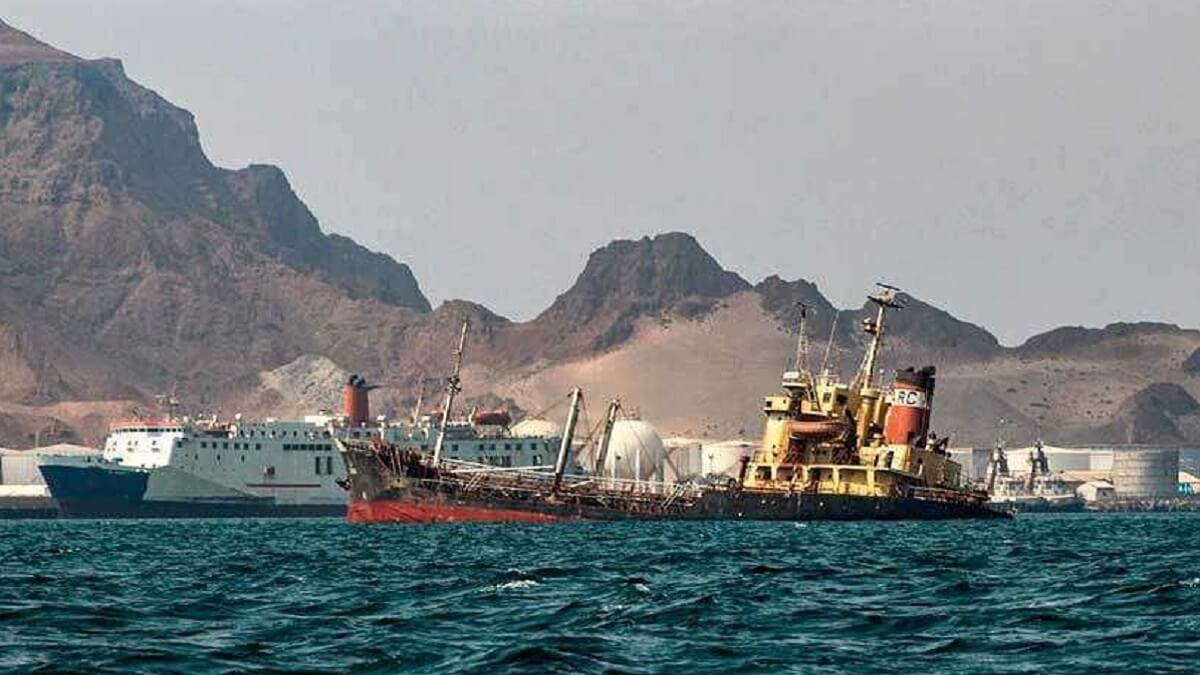
With this new coalition, the US and its allies hope to restore trade flows in the Red Sea, although the Houthis have vowed to continue attacks.
According to the chief spokesman for the militia, accused of committing crimes against Yemeni civilians during nearly 10 years of war in the country, the US-led coalition aims to "protect Israel and militarise the sea without any justification". "It will not prevent Yemen from continuing its legitimate operations in support of Gaza," Mohammed Abdel-Salam wrote on social media.
Attacking civilian ships is a war crime, as recalled by the NGO Human Rights Watch, which also accuses the Houthis of "firing missiles or drones and arbitrarily detaining ships' crews".
The Houthis, a Yemeni armed group, have attacked commercial ships with civilian crews in the Red Sea, saying they plan to target all ships heading to Israel “until the aggression against the Gaza Strip stops.”
— Human Rights Watch (@hrw) December 13, 2023
Deliberately attacking civilians is a war crime. pic.twitter.com/eAgYbAXYv5
Yemen, the biggest humanitarian crisis aggravated by Houthi crimes
These actions only show the international community the true face of the Houthis, who have been repressing their own population for years in the parts of Yemen they control.
The militia, which is at odds with the internationally recognised Yemeni government, has been accused of committing crimes and human rights violations in Yemen, including abductions, torture, indiscriminate bombings, random mine-laying and forced displacement.
Also, as in many conflicts, Yemeni women bear the brunt. Murder, mutilation, detention, abduction and sexual violence are some of the crimes committed by the Houthis against women, who are repeatedly raped while in detention, according to human rights organisations. The Houthis have also forcibly recruited children for their military activities.
The war in Yemen, which was sparked by a Houthi coup against President Abd Rabbuh Mansur al-Hadi, has led to the world's worst humanitarian crisis.
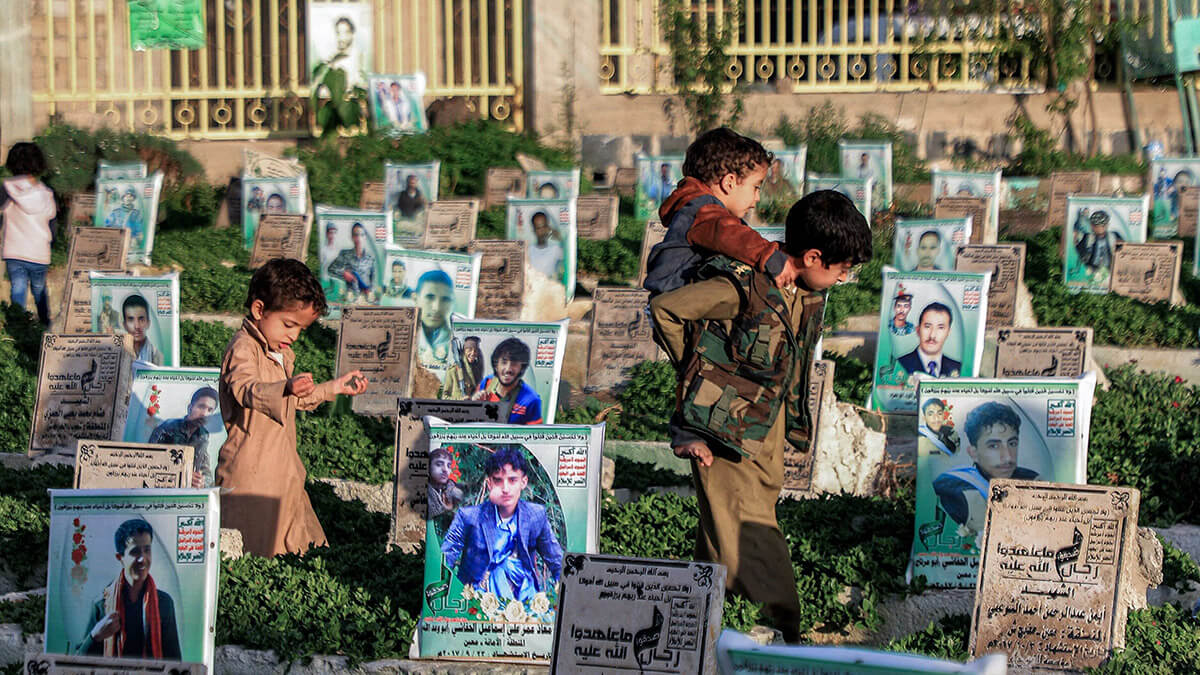
During 2023, 21.6 million people needed some form of humanitarian assistance as 80 per cent of the country struggled to put food on the table and access basic services, according to UN figures.
The country's health system has collapsed. It is estimated that a woman dies in pregnancy and childbirth every two hours from causes that are almost entirely preventable with access to services, while girls are increasingly vulnerable to child marriage, trafficking and child labour.
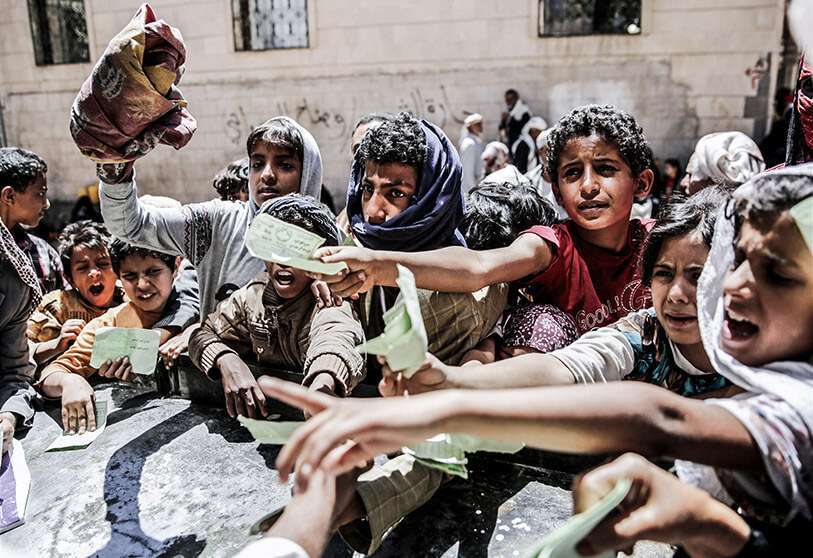
Israel finds new Hamas tunnels in Gaza, territory on brink of famine
While tensions remain high in the Red Sea, the Israel Defence Forces (IDF) continues its military operation in the Gaza Strip, expanding into new areas. In this regard, the IDF has begun asking residents of the central Gaza town of Bureij to evacuate to the south, facilitating the movement of civilians via a route along the coast.
As the operation spreads, the IDF continues to locate and destroy Hamas tunnels. In the last few hours, the Israeli army has demolished a major underground infrastructure hidden beneath Palestine Square in the upscale Rimal neighbourhood of Gaza City.
The network of tunnels connected to the hidden homes, offices and flats of senior Hamas officials, including Muhammad Deif, leader of the terrorist group's military wing, and Yahya Sinwar, the group's top leader in Gaza, for whom Israel is offering a reward of $400,000.
Each Hamas-built tunnel, estimated at $3 million that could have been invested in Gazan civil society, has armoured doors, housing, food and water supplies.
IDF raided the homes of senior Hamas officials in Gaza’s Rimal neighborhood, and found 35 (!!!) tunnel shafts there.
— Emily Schrader - אמילי שריידר امیلی شریدر (@emilykschrader) November 19, 2023
pic.twitter.com/sspvB8VPHU
Despite having food underground, Gazans are hungry and on the brink of starvation, the UN warns. "The entire population of Gaza faces an imminent risk of famine," the agency's humanitarian chief, Martin Griffiths, said on social media.
Hundreds of truckloads of humanitarian aid have entered the Palestinian enclave since the war began. However, it is not enough to cover all the needs of the population.
This announcement about the risk of famine in Gaza is sobering but not surprising.
— Martin Griffiths (@UNReliefChief) December 22, 2023
We have been warning for weeks that, with such deprivation and destruction, each day that goes by will only bring more hunger, disease and despair to the people of Gaza.
The war must end. https://t.co/YqIeqoAR08
Desperation has even led civilians to ambush and loot aid trucks. Also, armed men, allegedly members of Hamas, have beaten citizens and stolen aid, according to videos on social media.
Hamas was also accused of stealing fuel at the beginning of the war, as well as using civilians as human shields. With the entry of Israeli troops, rocket launchers and weapons have been discovered in schools, hospitals and residential buildings in Gaza.
The terrorist organization Hamas continues to loot and steal humanitarian aid, and the starving Gazans attack the aid trucks in order to survive and feed their families pic.twitter.com/K6aN0Usfkx
— Lorena Khateeb | لورينا خطيب (@kh_lorena) December 17, 2023
According to the Hamas-controlled Gaza Ministry of Health, the death toll in the Palestinian enclave has now reached 20,000 since the war began on 7 October following an unprecedented Hamas attack that left 1,200 Israelis killed and more than 200 kidnapped.
Most of the Israeli women and children held were released during a temporary truce, although there are still women and children in Gaza, as well as men and elderly people, many of them in poor health. Forty of the hostages could be released soon if Hamas had recently agreed to a new ceasefire agreement with Israel, which would also see more humanitarian aid entering Gaza.
As 79 Red Cross aid convoys cross from
— Michael Dickson (@michaeldickson) December 18, 2023
Israel, armed men loot the aid, presumably to earmark it for Hamas rather than Palestinian civilians. pic.twitter.com/wrAXW4lgmG
However, the terrorist group, as well as Palestinian Islamic Jihad, has rejected the deal, launching in recent hours one of the largest rocket barrages against Israel since the start of the war.
Interesting to see how Hamas or Islamic Jihad transports weapons. The IDF says it discovered long-range rockets (presumably ones that can reach Tel-Aviv or Jerusalem) inside what appears to transport truck. pic.twitter.com/iH70BJCUpu
— Joe Truzman (@JoeTruzman) December 20, 2023
Taking advantage of the war, Iran steps up executions
Palestinian Islamic Jihad, as well as Hamas, Hezbollah and the Houthis - the so-called 'Axis of Resistance' - are backed by Iran and launch recurrent attacks on Israeli territory. Pro-Iranian militias in Syria have also joined in attacks against Israel.
Tehran, for its part, has stepped up prisoner executions in recent weeks, taking advantage of the international and regional attention focused on the war in Gaza. According to Iran Human Rights (IHR) and the organisation Hengaw, the Iranian regime has executed more than 127 people, including women and children, since the conflict began on 7 October.
🖤The regime in #Iran killed another woman. #SamiraSabzian, a victim of forced child marriage, was executed today.
— Hannah Neumann (@HNeumannMEP) December 20, 2023
31 people have been executed the last 7 days alone - in the shade of the mess proxy groups such as Hamas, Hezbollah and the Houthis create.#StopExecutionsInIran pic.twitter.com/MxtquxCUNc
Human rights groups report an "alarming and significant increase" in executions since the start of the war between Israel and Hamas, including the execution of seven people in a 24-hour period.
The latest prisoner to be executed was Samira Sabzian-Fard, a victim of child marriage and convicted of murdering her husband.

